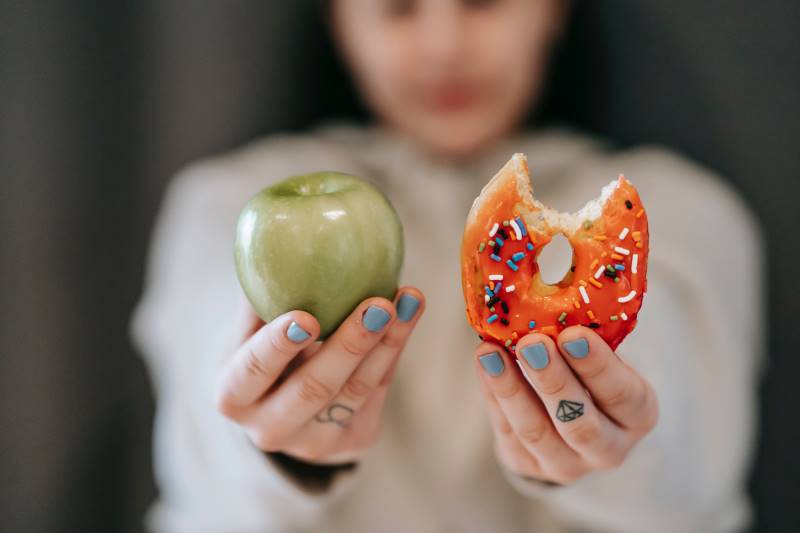
17 Jan 2024 - News
Skincare and Nutrition: Eating for Healthy Skin
Our diet has a big impact on our skin. What we eat can directly affect the health and appearance of our skin. By adding the right nutrients to our meals, we can feed our skin from inside and promote a clear and radiant complexion. In this article, we are going to analyze how diet affects the body’s biggest organ, dive into all the ways it affects and provide valuable tips for eating healthier for your skin.
1. The connection between diet and skin
There is no room for doubt when it comes to connecting diet with skin health. Your skin is your body’s largest organ, so it needs food to function at its best capacity. The quality of what you eat can impact your skin’s structure, elasticity and overall appearance. In fact, not getting enough nutrients or maintaining an unbalanced diet may lead to various issues like dryness, acne breakout and early aging symptoms.
2. Nutrients that create healthy skin
To maintain healthy-looking glowing skin, you need to consume a balanced amount of essential nutrients in your daily meals.
Vitamin A: Keeping your skins cells healthy will help reduce all those wrinkles you’ve been troubled about lately! That is why vitamin A is essential in combating dryness and improving texture. Find it in foods like carrots, sweet potatoes, spinach and kale.
Vitamin C: Make no mistake about Collagen! It plays an important role in keeping your epidermis elastic while also reducing fine lines. Citrus fruits like oranges are packed with this vitamin as well as bell peppers strawberries broccoli etc...
Vitamin E: Are you tired of getting out of the sun just to get back inside again? This might be the key element you’re missing! Vitamin E helps protect against harmful UV rays that damage your skin, leading to hydration problems later in life... Get this vitamin in almonds sunflower seeds, avocados.
Omega-3 fatty acids: Last but not least. If inflammation is stopping you from achieving your beautiful skin goals, Omega-3’s are essential in reducing inflammation in the skin and preventing dryness. Find it in fatty fish walnuts flaxseeds chia seeds
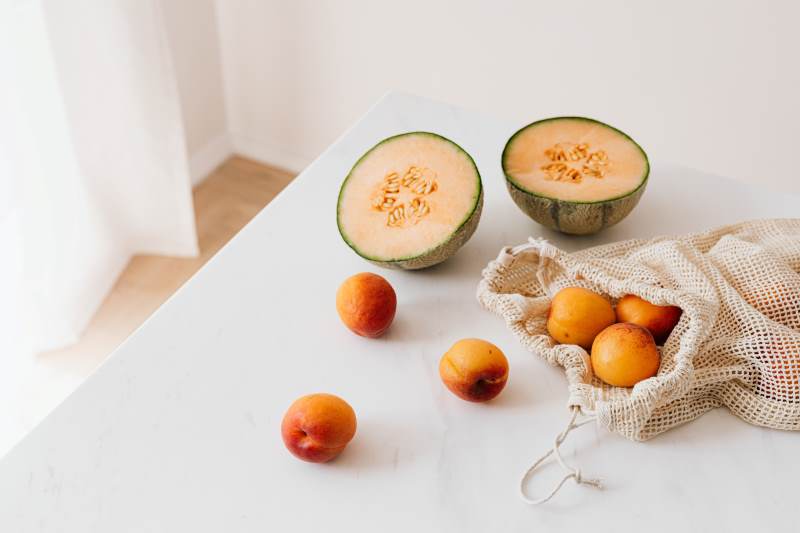
3. Antioxidants and Their Benefits
Antioxidants are a must-have when it comes to maintaining healthy glowing skin. They protect your skin from oxidative stress caused by pollution and UV radiation. Foods rich in antioxidants help prevent damage and promote overall repair of your tissues.
4. Hydration and Its Impact on Skin
You know what they say, “water is the best foundation!” What we drink also affects our appearance as well. When you’re dehydrated, your skin becomes dry, dull and more prone to wrinkles. That’s why it is important to drink the recommended amount of water throughout the day (8 glasses) and increase if performing any tasks that require sweat or if you live in a hot environment.
5. Foods for Healthy Skin
To promote a healthier looking face, incorporating these nutrient-rich foods onto your plate:
- Leafy greens (spinach, kale, Swiss chard)
- Colorful fruits and vegetables (berries, oranges, bell peppers)
- Whole grains (oats, quinoa, brown rice)
- Lean proteins (chicken, turkey, tofu)
- Nuts and seeds (almonds, flaxseeds, chia seeds)
- Healthy fats (avocado, olive oil, nuts)
- Probiotic-rich foods (yogurt, kefir, sauerkraut)
6. Foods to Avoid
It’s just as important avoiding certain foods that may cause harm to your body’s largest organ.
- Processed and fried foods
- High-sugar foods and beverages
- Excessive caffeine
- Foods high in saturated fats
- Alcohol in excess

7. The Role of a Balanced Diet
To maintain healthy skin, it isn't enough to chow down on specific nutrients alone. It's important to have a balanced diet overall. By consuming a well-rounded eating plan that consists of different food groups, you'll provide your body with the vitamins, minerals and antioxidants it needs for optimal skin health.
8. Meal Planning for Healthy Skin
Here are several tips to help you incorporate skin-friendly foods into your daily meals:
- Kickstart your day with a nutrient-dense breakfast such as a smoothie made of spinach, berries and flaxseeds.
- Sprinkle an assortment of colourful fruits and vegetables into your salads, stir-fries and side dishes.
- Opt for lean proteins like chicken or tofu and pair them with whole grains such as quinoa or brown rice.
- For snacks, replace processed junk food with nuts, seeds or sliced fruits.
- Cook using healthy fats such as olive oil or avocado oil.
- Include fermented foods like yogurt or sauerkraut for their probiotic benefits.
9. Skincare Habits for Optimal Results
While maintaining a healthy diet is essential for good skin health, it is equally vital to supplement it with proper skincare habits. Cleanse your skin gently, moisturize regularly, and protect it from the sun by layering on sunscreen. Choose skincare products that work best for your specific concerns (such as acne or dryness) while being gentle enough on your skin type too.
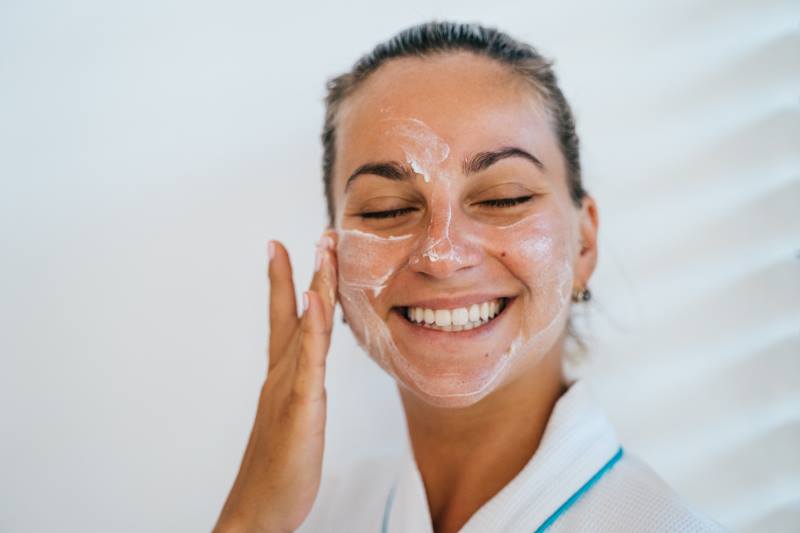
10. Lifestyle Factors That Influence Skin Health
In addition to eating habits and making sure you’re following the right skincare routine, certain lifestyle factors can also affect the health and appearance of your skin:
- Make sure you get enough sleep; about 7-9 hours each night should do the trick.
- Combat stress through exercise, meditation or hobbies so you don’t develop any skin issues from high stress levels.
- Don’t smoke, as it speeds up the aging process and damages collagen and elastin fibers in the skin.
- Limit your exposure to the sun by wearing sunscreen, seeking shade and wearing protective clothing. UV rays can be very harmful to your skin.
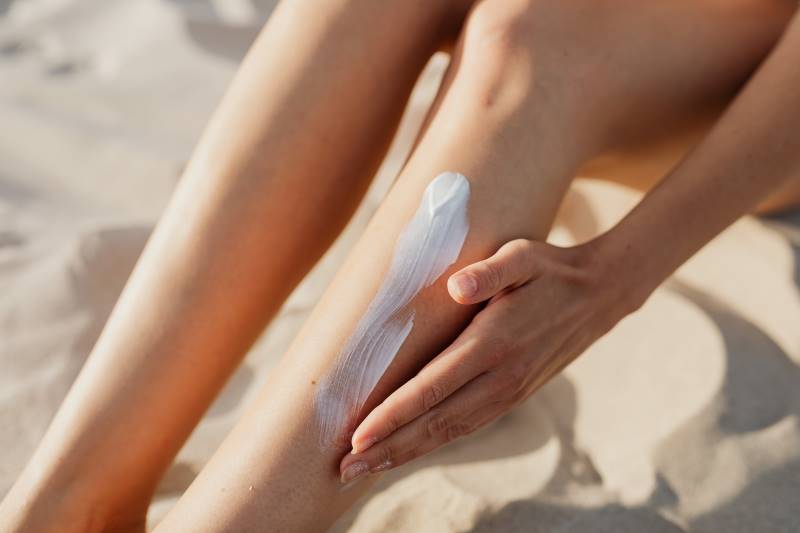
11. Addressing Common Skin Concerns
Different skin conditions have their unique dietary considerations. Here are some tips for common concerns:
- Acne-prone skin: Avoid high-glycemic foods and dairy products while focusing on those rich in zinc and antioxidants.
- Dry skin: Increase healthy fats intake and hydrating foods, omega-3 supplements could also help!
- Aging skin: Consume foods rich in antioxidants, collagen-boosting nutrients and healthy fats.
Conclusion: Achieving healthy-looking skin doesn't stop at skincare products and treatments. Nutrition is key when it comes to maintaining a clear complexion with a natural glow. By incorporating a balanced diet that's brimming with essential nutrients, antioxidants and hydration, you'll be able to take care of your skin's health from the inside out. Combine this habit with a proper skincare routine along with other lifestyle factors for best results.
FAQs (Frequently Asked Questions)
How long does it take to see improvements in my skin by following a healthy diet?
While everyone is different, you can expect noticeable improvements within several weeks or even just a couple months.
Can eating healthy alone completely get rid of certain skin problems like acne or wrinkles?
A balanced diet can do wonders when it comes to improving your overall skin health but there are still other factors that come into play when dealing with specific problems.
Are supplements necessary for healthy skin?
Healthy skin is usually taken care of through a well-rounded diet. Sometimes, a supplement like vitamin D or omega-3 can come in handy to give your skin an extra boost. Talk to your doctor for personalized advice.
Can I have my cake and eat it too?
Sort of. It’s all about moderation. You can still enjoy your favorite treats here and there, but make sure you’re eating nutrient-rich foods most of the time.
I’m stressed all the time, could that be why my skin sucks even though I eat healthy
Yes! Stress can cause acne even if you’ve been eating really well. Find stress relievers that work for you so you can take care of yourself from the inside out.
The Skincare Specialists at AyurVida Wellness and Clinic will be delighted to assist you in achieving the healthiest skin of your life!
FOR ASSISTANCE TEXT 619-637-0201
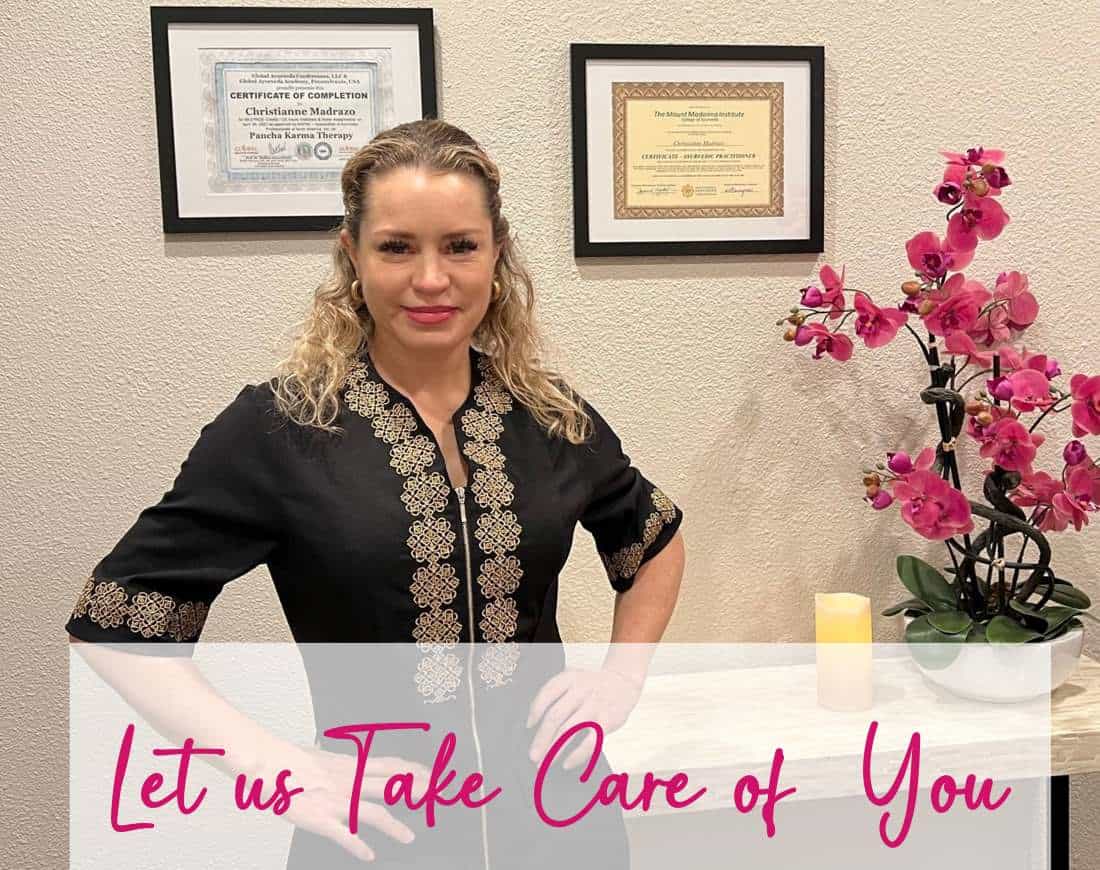
CONTACT US
PHONE:
619-291-6614
For immediate assistance:
TEXT 619-637-0201
ADDRESS:
1611 West Lewis San Diego CA 92103
